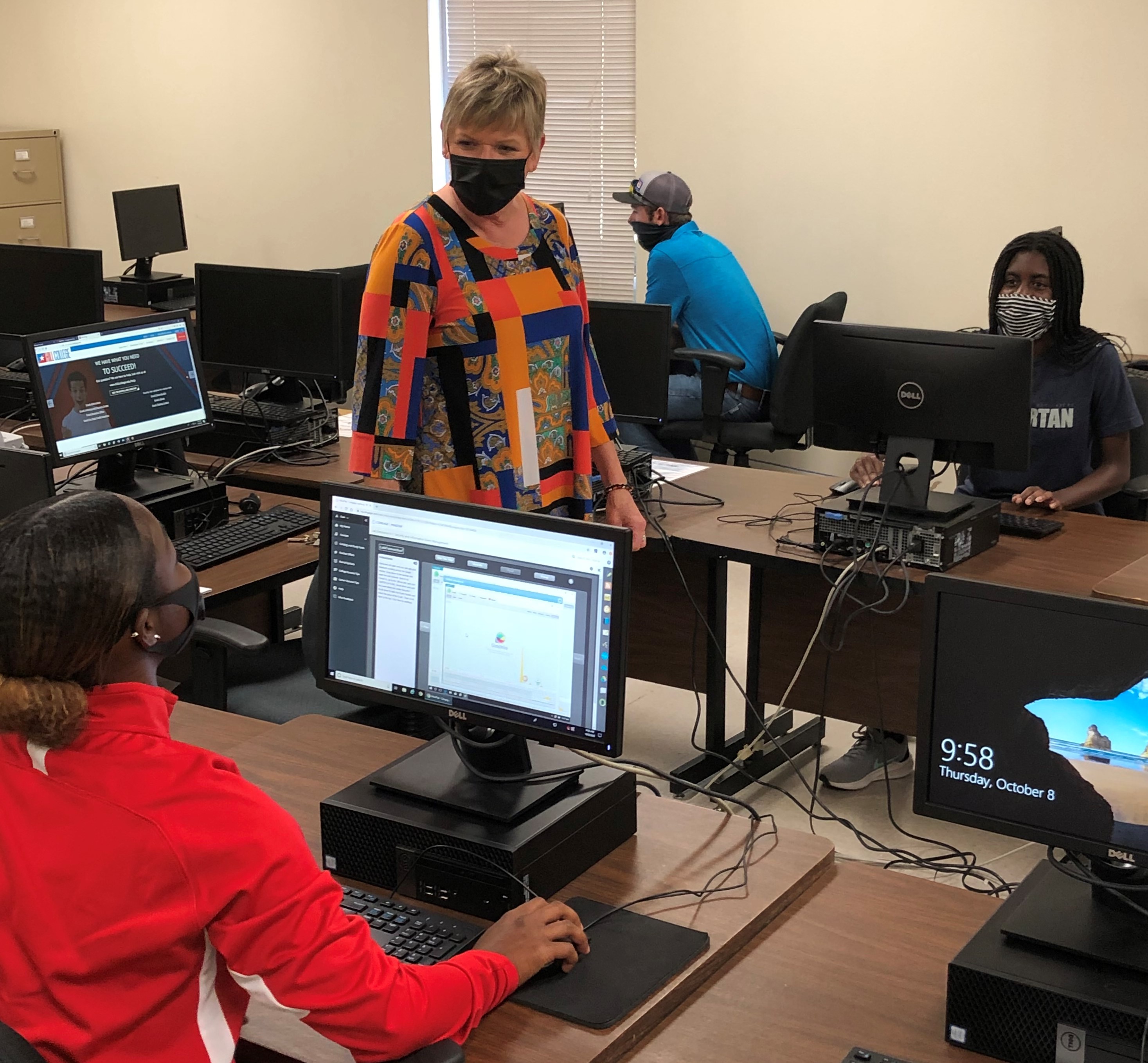Hill College aims to close the cybersecurity skills gap through national designation, local partnerships
Jessyca Brown
Friday, November 13, 2020 10:11 AM
Academics
Hillsboro, TX

In keeping up with national security needs and cybersecurity workforce demands, Hill College completed the rigorous application process to become a National Center of Academic Excellence in Cyber Defense Education (CAE-CDE).
The CAE program is sponsored in part by the National Security Administration (NSA) and the Department of Homeland Security (DHS) and aims to reduce vulnerabilities in the national information structure through a collaborative cybersecurity educational program with community colleges, colleges and universities.
Hill College’s Associate of Applied Science (AAS) in Computer Science, Networking Cybersecurity program received the prestigious CAE-CDE designation from the NSA and DHS last year, becoming one of only 108 two-year colleges nationwide with the designation.
“We are excited about the challenge to increase awareness of and provide education and training in cybersecurity for our service community, public schools and local industry,” said Hill College cybersecurity instructor Jackie Armstrong.
While colleges are required to meet numerous stringent criteria to receive the designation, the most notable is the alignment of program curriculum with industry-specific Knowledge Units (KU) and the National Initiative for Cybersecurity Education (NICE) Cybersecurity Workforce Framework.
“The KUs and NICE Cybersecurity Workforce Framework are used nationally among industry workers, educational programs and government organizations,” Armstrong said. “This ensures students completing our program will obtain the exact skill set needed to be immediately employed in today’s cybersecurity workforce.”
The NSA’s intent for the CAE program is to also extend academic and work-based learning opportunities in cybersecurity beyond the college classroom, which requires CAE-CDE designated colleges to partner with local K-12 schools, community leaders and businesses.
“Strengthening these relationships is of the utmost importance for us going forward,” said Armstrong. “We must work together to increase awareness and interest of cybersecurity workforce opportunities among our K-12 students, provide direct learning experiences through apprenticeships and internships, and educate our communities about cyber safety.”
More than 46,000 online job listings for cybersecurity-related positions in Texas alone were reported on CyberSeek.org from June 2019 through May 2020, half of which were available in the Dallas-Fort Worth-Arlington metro area. Nationwide, that number was over 500,000—a number Armstrong said will likely grow due to the changing landscape of the industry and increase in cyber threats.
“Doing business in 2020 and beyond will be different,” said Armstrong. “Additional flexibility in the workplace, such as work hours and work-from-home options, will also alter tools we use to conduct business, putting more emphasis on mobility and security.”
These ongoing changes to business operations nationwide, as well as the extreme shortage of highly qualified and skilled cybersecurity professionals, presents opportunities for local businesses to help develop a pipeline of homegrown cybersecurity talent.
“I encourage our alumni and local businesses who are interested in helping us improve our program and provide our cybersecurity students with meaningful learning experiences to reach out to me,” Armstrong said.
Armstrong also stated that local businesses can play a significant role in community outreach.
“We are also looking for cybersecurity professionals and businesses to work with us to provide training and other awareness-building activities within our Hill County communities,” said Armstrong. “Cyber defense is a united fight for all.”
The Networking Cybersecurity AAS education plan is part of the science, technology, engineering and mathematics (STEM) pathway at Hill College. The degree is a total of 60 credit hours and includes an 18-credit hour technical core certificate of completion, a 27-credit hour networking cybersecurity certificate of technology, and only an additional 15-credit hours for the full AAS degree.
To partner with Hill College in providing cybersecurity-related community outreach or student internships, contact Armstrong at 254-659-7950 or jarmstrong@hillcollege.edu. For more information about the program, visit https://www.hillcollege.edu/CD/Cyber.html.
CybersecurityClass.jpg Cutline:
Computer science instructor Jackie Armstrong works with students during an information technology security class, a 3-hour credit course in the networking cybersecurity program, at the Hill County Campus.
